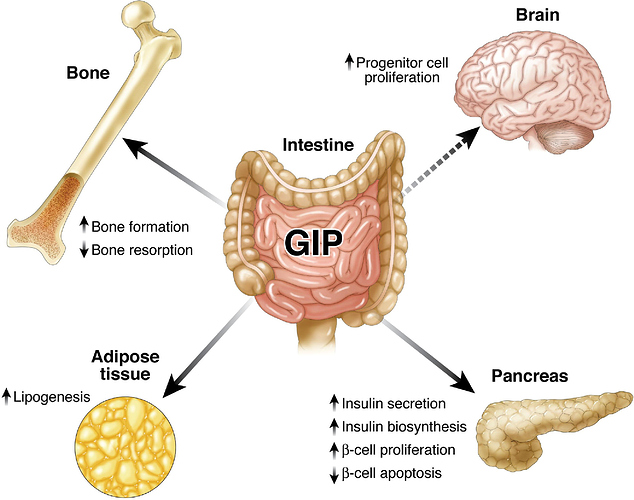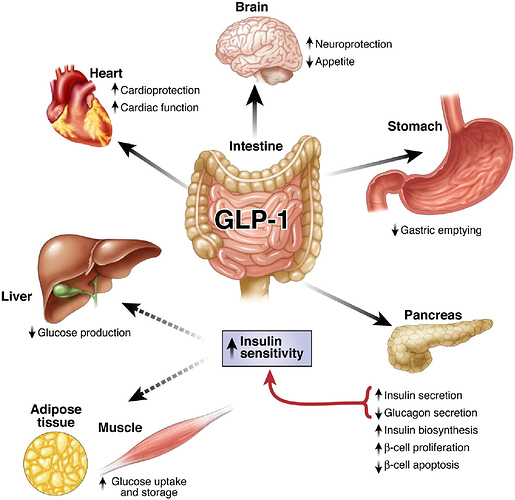The Search function on the forums shows quite a few mentions of glucagon-like peptide-1 (GLP-1) dating back over 7 years. Many conversations in the “Show me the Science” sub-stack. There is lots of interesting reading to be done. I haven’t done it yet. So please excuse me if I sound like a dummy.
Doing a topic search really demonstrates what an important resource these forums have become.
https://www.ketogenicforums.com/search?q=GLP-1&expanded=true
Summary: There are GLP-1 receptor agonist micro-dosing protocols being advocated for clearing brain fog, creating calmness, suppressing appetite and increasing satiety, lowering blood sugar and lowering blood pressure. The list of medication effects mirrors the effects of a properly formulated ketogenic diet. The dietary and lifestyle changes pathway do the same things without the expense of the drug. But maybe not for everybody. Maybe the drugs will help people who are stuck in ill-health? Many mainstream advocates apply the drug treatment without lifestyle and eating behaviour support, so that the drugs become deemed, “life-long”. As stopping the drug reverts the person back to problems. More functional-medicine style practitioners will use the micro-dosing as part of a protocol that includes dietary changes and lifestyle improvements such as sleep improvement and lowering stress. So, I wonder if a drug-free protocol of a well formulated ketogenic diet, better sleep, more physical activity, stress lowering practies (e.g. meditation), improved social relationships, might produce similar results?
Before we launch into a discussion about more recent GLP-1 treatments and usages, I thought I would ask Ben Bikman to join us with his summary of a study about dietary fats and GLP-1 response:
Dr. Bikman gets back to basics here:
I’m not posting Ivor Cummins to cause a stir. I rate his guest Gabor Erdosi as one of the best knowledge sources on the processing of foods and how it effects metabolic health. So, more for my own resource, I’m dropping Gabor in here, at least until I find the Peak Human podcast episode where he describes the anatomy of the gut and the biochemistry of gut hormones effects even more clearly:
Released from cells in the proximal intestine (closer to stomach)
Released from cells in the distal intestine (further from the stomach, closer to the large bowel)
This was the podcast where I first listened about Semaglutide/ GLP-1 agonist micro-dosing. I am so late to this party. Despite the production values being quite annoying (to my ear) there were some interesting concepts presented to think about:


